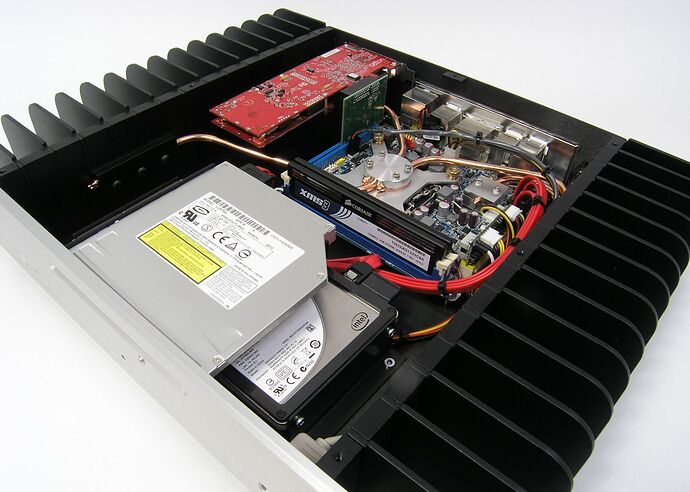I’ve been researching what to replace my 4.5 year old miniature desktop, (ASRock DeskMini A300). I am sort of still boycotting Intel, so I was mostly looking at AMD. There are very limited ARM SoCs or CPUs with ECC memory, so that is not a real option.
Today I find that the AMD Ryzen Pro 8000G series support ECC memory, if the system board also supports it. (Which would mean the BIOS would need to support it too.) These new processors use the AM5 socket with DDR5, so a bit of more longevity that my old AM4 & DDR4.
This is what I was looking at, (though only the Pro CPUs support ECC Memory…);
The neat thing about the DeskMeet, verses the DeskMini, is that the DeskMeet can support 1 x 3.5" disk, (or 2 x 2.5" disks), dual wide discreet graphics. (Both support 2 x NVMe…)
At present I have an AMD Ryzen 5 2400G, (4 core, 8 threads at 3.6Ghz), with 2 x 16GB non-ECC memory modules.
So, any AMD Ryzen Pro 8000G series would be an improvement. If I go with any of the top 4 models, I get a medium end AI / MAC. And, it would also appear that all Pro models would include more memory security features, like encrypted memory, than the non-Pro chips.
Now I just have to wait again for these chips to be available via retail market. (After waiting close to a year for the new ASRock DeskMeet X600 to be available…)
I can even consider using the same DeskMeet with a lower end CPU, (aka 35 watt, instead of the 65 watt performance CPU), for replacing my 10 year old miniature media server. That would be nice, because I have been lucky so far…
Comments?
Polite criticism?
Alternatives?
